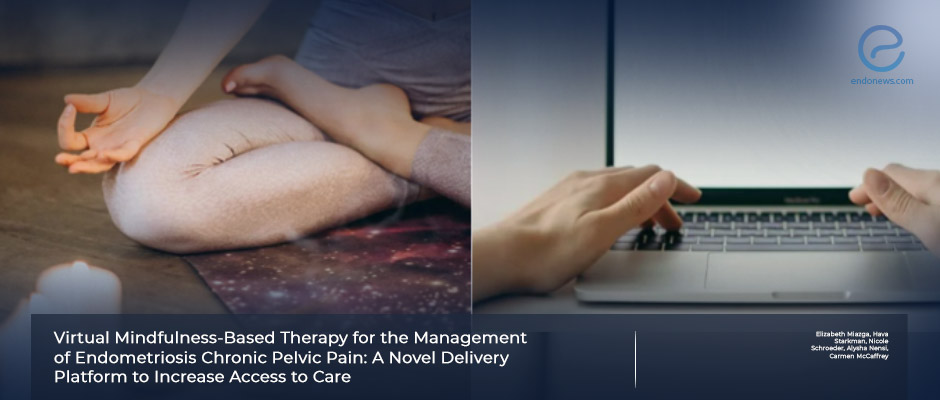Can a Virtual Stress Reduction Program Help Improve my Quality of Life?
May 22, 2024
A virtual mindfulness-based stress reduction program may improve the quality of life of patients living with endometriosis.
Key Points
Highlights:
- A virtual mindfulness-based stress reduction program can improve the quality of life of patients with endometriosis.
- Patients felt more comfortable with the virtual format than with a face-to-face program.
Importance:
- Virtual programs could help increase the access of patients with endometriosis to mindfulness-based stress reduction programs.
What’s done here:
- Researchers analyzed the answers of 10 patients with endometriosis before and after an 8-week virtual mindfulness-based stress reduction program.
Key results:
- There was a statistically significant decrease in scores of control and powerlessness, emotional well-being, social support, and self-image. (A low score corresponds to better health).
- There was no change in pain score or medications used.
Limitations:
- The sample size was small with just 10 participants completing the program.
- Due to a selection bias in the sample, the findings might not apply to all patients with endometriosis.
- There was no long-term follow-up and it is not known whether there would be a difference in pain score or other measures in the long term.
Lay Summary
A virtual mindfulness-based stress reduction program may improve the quality of life of patients with endometriosis, according to a new study published in the Journal of Obstetrics and Gynaecology Canada.
The authors of the study reported that the program was “effective and preferred by participants”.
These findings suggest that such virtual programs may increase access to care in the future.
To assess the effectiveness of a virtual mindfulness-based stress reduction course in improving the quality of life and reducing the pain of people living with endometriosis, a team of researchers led by Dr. Carmen McCaffrey from the Department of Obstetrics and Gynecology, University of Toronto, and Unity Health at St. Michael's Hospital in Toronto, Canada, conducted a study on 15 patients with the disease. The patients completed the Endometriosis Health Profile (EHP) before and after a virtual mindfulness-based stress reduction program that lasted 8 weeks. Of the 15 patients who were enrolled in the study, 10 completed the course.
The results showed that the participants had a statistically significant decrease in four components of the EHP after the program. These four components were control and powerlessness, emotional well-being, social support, and self-image. However, there were no changes in the pain scores or medication use before and after the program.
The patients said that the benefits of the program were associated with a sense of community, education about endometriosis, and the application of mindfulness tools for pain. They added that they felt more comfortable with a virtual program than with a face-to-face session.
“Future work should assess the modified [mindfulness-based stress reduction] course in a randomized control trial fashion and assess the long-term impacts of the program,” the authors concluded.
Research Source: https://pubmed.ncbi.nlm.nih.gov/38614242/
mindfulness quality of life pain Endometriosis Health Profile

